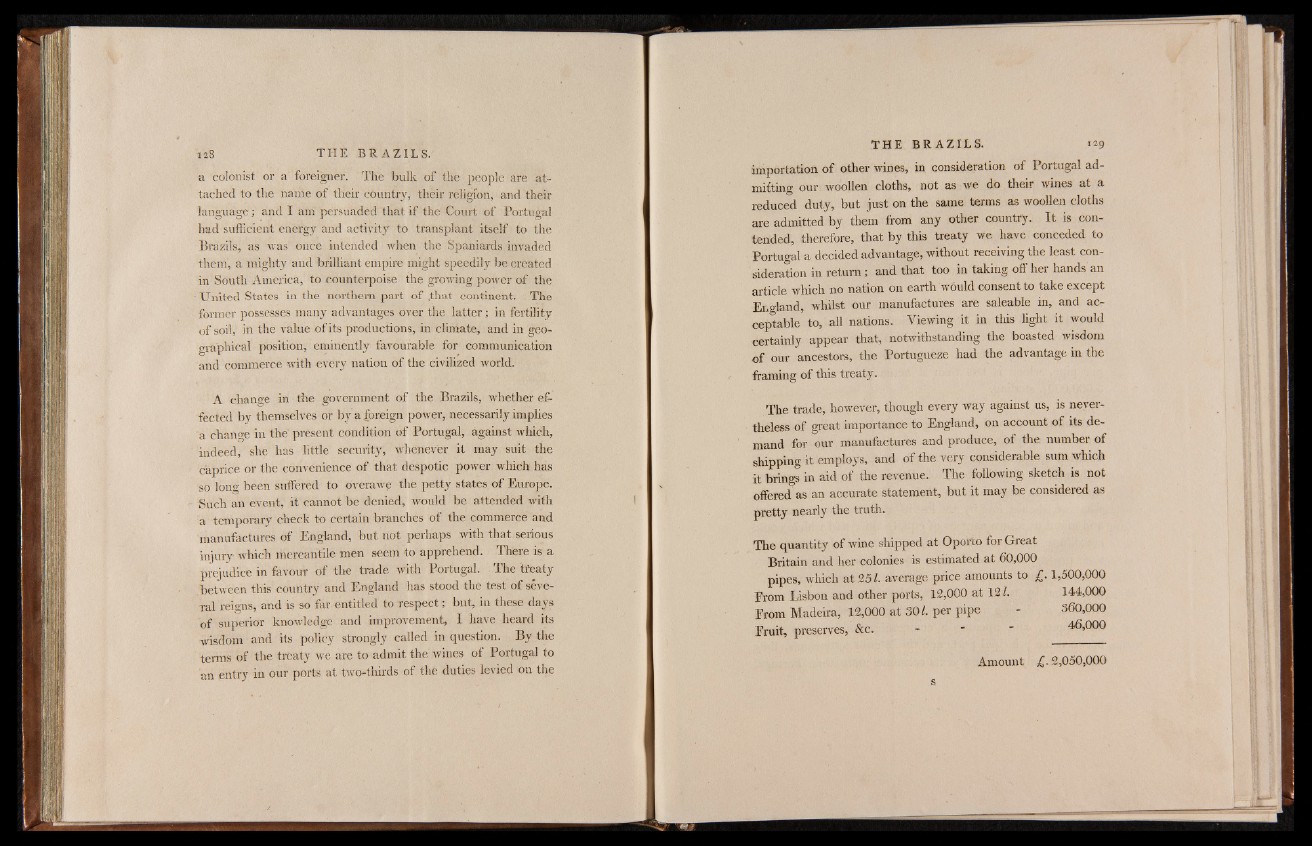
a colonist or a foreigner. The bulk of the people are attached
to the name of their country, their religion, and their
language; and I am persuaded that if the Court of Portugal
had sufficient energy and activity to transplant itself to the
Brazils, as was once intended when the Spaniards invaded
them, a mighty and brilliant empire might speedily be created
in South America, to counterpoise the growing power of the
United States in the northern part of .that continent. The
former possesses many advantages over the latte r; in fertility
of soil, in the value of its productions, in climate, and in geographical
position, eminently favourable for communication
and commerce with every nation of the civilized world.
A chan ge in the government of the Brazils, whether effected
by themselves or by a foreign power, necessarily implies
a change in the present condition of Portugal, against which,
indeed, she has little security, whenever it may suit the
caprice or the convenience of that despotic power which has
so long been suffered to overawp the petty states of Europe.
Such an event, it cannot be denied, would be attended with
a temporary check to certain branches of the commerce and
manufactures of England, but not perhaps with that serious
injury which mercantile men seem to apprehend. There is a
prejudice in favour of the trade with Portugal. The tfeaty
between this country and England has stood the test of several
reigns, and is so far entitled to respect ; but, in these days
of superior knowledge and improvement, I have heard its
wisdom and its policy strongly called in question. By the
terms of the treaty we are to admit the wines of Portugal to
an entry in our ports at two-thirds of the duties levied on the
importation of other wines, in consideration of Portugal admitting
our woollen cloths, not as we do their wines at a
reduced duty, but just on the same terms as woollen cloths
are admitted by them from any other country. I t is contended,
therefore, that by this treaty we have conceded to
Portugal a decided advantage, without receiving the least consideration
in return; and that too in taking off her hands an
article which no nation on earth would consent to take except
England, whilst our manufactures are saleable in, and acceptable
to, all nations. Viewing it in this light it would
certainly appear that, notwithstanding the boasted wisdom
of our ancestors, the Portugueze had the advantage in the
framing of this treaty.
The trade, however, though every way against us, is nevertheless
of great importance to England, on account of its demand
for our manufactures and produce, of the number of
shipping it employs, and of the very considerable sum which
it brings in aid of the revenue. The following sketch is not
offered as an accurate statement, but it may be considered as
pretty nearly the truth.
The quantity of wine shipped at Oporto for Great
Britain and her colonies is estimated at 60,000
pipes, which at 251, average price amounts to £ . 1,500,000
Erom Lisbon and other ports, 12,000 at 121. 144,000
From Madeira, 12,000 at 30/.p e r pipe - 360,000
Eruit, preserves, &c. - 46,000
Amount £■ 2,050,000
s